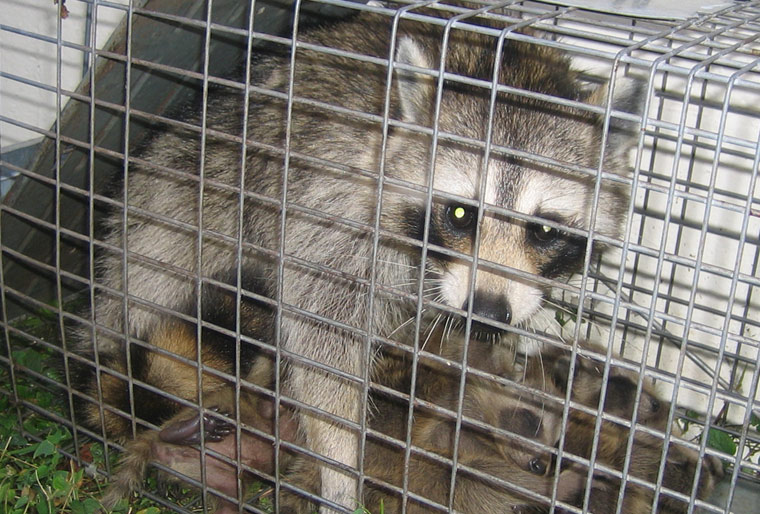- info@wildlife-removal.com
Call us for help in your town
Wildlife Removal Education
Is it Safe to Touch a Raccoon?
Need raccoon removal in your hometown? We service over 500 USA locations! Click here to hire us in your town and check prices - updated for year 2020.
You should NEVER touch or attempt to handle a raccoon with bare hands. In fact, you shouldn't get that close to these wild animals at all. They are wild — they will exhibit wild behavior, which often involves hissing, growling, stamping of feet, alongside actual and physical wounds — bites, scratches, slaps, general lashing out, etc.

Also read about:
Do Daytime-Active Raccoons Have Rabies?
Raccoons - Do they make a good pet?
What Are Raccoons Scared Of?
Do Raccoons Attack People?
What To Do If You Are Bitten By A Raccoon
To a raccoon, a person is a predator. Even a child. Raccoons are right to be wary of people and to treat them with caution and a certain amount of fear — people have been trying to trap and kill the animal for hundreds of years. Perhaps even longer than that, in some cases. What doesn't help, of course, is that raccoons have not only learned to associate humans with fear and panic, but also with food. Humans come hand in hand with food. We feed raccoons, leave food out for them in garbage cans, and they have plenty of sources of food in back yards and farm areas too, usually in the form of chicken feed or bird feeders, pet or farm animal feed, plants, fruits, vegetables, etc.
When you get close to a raccoon, it doesn't know whether or not you are trying to feed it or kill it, but it will probably assume that you are trying to kill it. That means the animal will retaliate accordingly. In the wild, when an animal such as the raccoon comes under attack, they act in an aggressive nature back, biting, scratching, hissing, growling, and all of the other things we mentioned above. This can happen to people — a wound from a raccoon fight will no doubt require medical attention. You will need to ensure that you haven't contracted the rabies virus, and you will also need to be sure that you can't get an infection and have had all of the appropriate shots.
Not just vicious (when it suits them), raccoons are disease-ridden animals. They are known to carry not just the rabies virus, but also raccoon roundworm through feces, salmonella via the same way, and various others. In order to safely handle a rat, you will need to be sure that you have no flesh on show, and that any gloves are thick enough to withstand the claws and teeth of this animal. Simple latex gloves are really not the answer. You need something thicker than that, similar to gardening gloves, but the thickest ones and more protective ones that you can get your hands on.
It is not safe to handle a raccoon, whether it's a baby or an adult one. You should always ensure that you are wearing adequate protection, including face masks and eye protection, whenever you handle ANY wild animal, but especially a raccoon.
Go back to the Raccoon Removal page, or learn tips to do it yourself with my How to Get Rid of Raccoons guide.


















